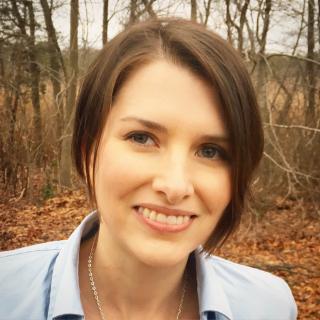Conference: Jun 26-28, 2017
Workshops: Jun 29-30, 2017
Presentation: Syntactic Sugar for English: Pragmatic Eloquence
Location:
- Dumbo / Navy Yard
Duration
Day of week:
- Wednesday
Level:
- Beginner
Persona:
- General Software
Key Takeaways
- Understand the role of effective communication in our lives as software professional and how you can improve how well you communicate.
- Hear how you can apply an algorithmic approach to how you speak and communicate.
- Learn concrete steps to improve your ability to communicate with others.
Abstract
In this session, we'll focus on an algorithmic approach to speaking authoritatively and authentically by identifying "word smells" and learning new "sentence patterns." This approach fuses together over a decade of Wendy's software experience with the basics of executive coaching and mixes in over 1000 hours of her training in mindful practices.
You will walk away with concrete steps that will get you in the habit of not only winning friends and influencing people, but improving your career. Back in 1936 Dale Carnegie's research deemed that regardless of domain, our ability to communicate accounts for 85% of our career growth. While technology and the Internet have given us new ways to communicate, they have not reduced its value. If anything, the abstraction they add has increased its importance.
Software runs so much of the world, yet we, its creators, have so little influence. If we invest 10% of what goes into creating eloquence in our programming language into our spoken language, we would dramatically shift our power. While Carnegie's book and many others contain valuable ideas and philosophies, developers think algorithmically and we need strategies rooted in logic and clear rules.
Interview
Tracks
Monday, 13 June
-
Architectures You've Always Wondered About
Case studies from: Google, Linkedin, Alibaba, Twitter, and more...
-
Stream Processing @ Scale
Technologies and techniques to handle ever increasing data streams
-
Culture As Differentiator
Stories of companies and team for whom engineering culture is a differentiator - in delivering faster, in attracting better talent, and in making their businesses more successful.
-
Practical DevOps for Cloud Architectures
Real-world lessons and practices that enable the devops nirvana of operating what you build
-
Incredible Power of an Open-Sourced .NET
.NET is more than you may think. From Rx to C# 7 designed in the open, learn more about the power of open source .NET
-
Sponsored Solutions Track 1
Tuesday, 14 June
-
Better than Resilient: Antifragile
Failure is a constant in production systems, learn how to wield it to your advantage to build more robust systems.
-
Innovations in Java and the Java Ecosystem
Cutting Edge Java Innovations for the Real World
-
Modern CS in the Real World
Real-world Industry adoption of modern CS ideas
-
Containers: From Dev to Prod
Beyond the buzz and into the how and why of running containers in production
-
Security War Stories
Expert-level security track led by well known and respected leaders in the field
-
Sponsored Solutions Track 2
Wednesday, 15 June
-
Microservices and Monoliths
Practical lessons on services. Asks the question when and when to NOT go with Microservices?
-
Modern API Architecture - Tools, Methods, Tactics
API-based application development, and the tooling and techniques to support effectively working with APIs in the small or at scale. Using internal and external APIs
-
Commoditized Machine Learning
Barriers to entry for applied ML are lower than ever before, jumpstart your journey
-
Full Stack JavaScript
Browser, server, devices - JavaScript is everywhere
-
Optimizing Yourself
Keeping life in balance is always a challenge. Learning lifehacks
-
Sponsored Solutions Track 3



